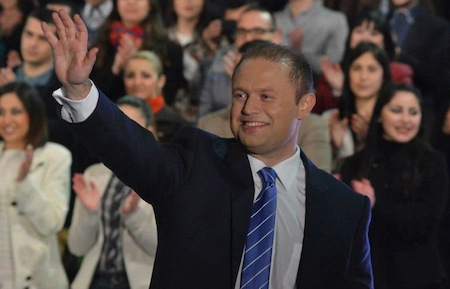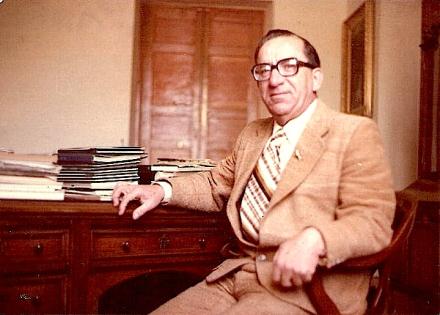
It’s the least populous — and newest — member of the eurozone, but tiny Malta, with around 420,000 people, is poised to become the latest European nation to vote for massive change, tossing out the long-governing center-right Nationalist Party (Partit Nazzjonalista) of prime minister Lawrence Gonzi. 
Polls have closed in Malta, and opinion polls show that Joseph Muscat, the leader of the opposition center-left Labour Party (Partit Laburista), will likely now become Malta’s new prime minister and, at age 39, the eurozone’s youngest leader (younger even than Finnish prime minister Jyrki Katainen).
What does that mean for Malta and for Europe?
Muscat has borrowed liberally from the ‘change’ playbook that propelled U.S. president Barack Obama to office in 2008, but it’s not incredibly clear exactly the kind of change that he’ll bring to Malta, other than a promise to reduce Malta’s incredibly high electricity rates by 25% (though, again, it’s not clear how he’ll do that).
But Malta, with GDP growth of around 1.5% in 2012, unemployment of just 7% and a budget deficit under the EU threshold of 3% of GDP, has been relatively immune to the recession that’s gripped much of the eurozone and especially Mediterranean Europe, thanks in large part to tourism and a growing financial sector.
Muscat, a former member of the European Parliament, took over the leadership of the party following the previous March 2008 elections, in which Labour very narrowly lost the election, giving the Nationalists a one-seat advantage in the 69-member parliament.
He succeeded Alfred Sant, who led Labour throughout the 1990s and led the (failed) opposition to the 2003 referendum that opened the way for Maltese accession to the European Union. Muscat and most of the Labour Party in 2003 opposed accession, which along with accession to the eurozone, is the chief Nationalist accomplishment of the past decade.
Muscat has since backtracked and supports Malta’s eurozone membership — that’s good, because Malta will hold the rotating six-month EU presidency in 2017.
Gonzi, prime minister since 2004, leads a party that has governed Malta, with the exception of a 23-month Labour government in the late 1990s, since 1987. His government fell earlier this year over the budget — not because of any austerity measures, but because a member of his own party opposed a decision to hire a German operator to manage Malta’s national bus service.
Muscat’s campaign, however — long on platitudes and short on details — suggest that the Maltese rationale for change is different than that of most European voters, who over the past two years have ousted incumbents from France to Greece to Spain to Ireland, but simply because they have grown weary of a Nationalist government that’s come to the exhausted end of a long run in power:
Has Muscat landed at a fortuitous time in Maltese politics? The Nationalists are a spent force ten years after EU accession, the unpredictable Alfred Sant has been exorcised from the new Labour tableau, and the perception of the ‘clique’ at the PN’s Stamperija and Castille has been amplified so much, that the fin-de-siècle odour is too strong to ignore. Enter the politics of the air-freshener.
The dynamic is reminiscent of the fatigue many voters felt toward the end of the Conservative Party’s 18-year hold on power in the United Kingdom in 1997 (just cast Gonzi as former UK prime minister John Major).
Likewise, Muscat has led a flashy campaign to reinvigorate the once-dowdy Labour Party in the same way that Tony Blair revamped the UK Labour Party. Since taking over from Sant in 2008 (cast Sant as Malta’s answer to Neil Kinnock), Muscat has worked to build bridges with the Maltese business committee and otherwise modernized and moderated his party’s views, least of all in support of Malta’s new role in the EU.
Nowhere in the campaign has there been the kind of discontent or anger or economic pain that’s fueled the rise of protest movements — like the Movimento 5 Stelle (Five Star Movement) that recently won over 25% of the vote in the Italian elections.
As such, Muscat’s election seems unlikely to add much to the ongoing ‘austerity vs. growth’ debate in Europe.
![]()

